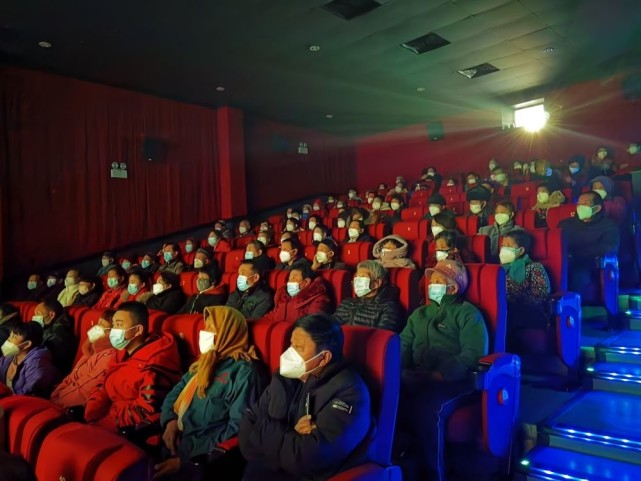Public welfare cinema enriches leisure time of rural residents


JINAN - On Jan 22, the second day of the seven-day Spring Festival holiday, 65-year-old Guo Cuimei decided to celebrate the holiday by going to the cinema.
Guo went to a local public welfare cinema to watch "The Taking of Tiger Mountain," an action blockbuster directed by Hark Tsui. At 9 am, the theatre was already full of local residents.
For Guo and her fellow residents of Xihe township in Shandong Province, watching films has been a traditional pastime since decades ago.
"When I was little, the county authority dispatched projectionists to show us films," Guo recalled. "We had to walk long distances to watch them, but we never felt tired," she said. To this day, she can still clearly recount the plot of classic Chinese films such as "Heroic Sons and Daughters."
"Watching films for rural residents is not just an entertainment, but a way of socializing," said Li Fengzhu, the manager of a film company in Zibo, Shandong Province. However, outdoor film screenings depend a lot on the weather and are, therefore, usually scheduled on warmer days.

To address this problem, Xihe township in 2015 launched a project to convert an abandoned local brick factory into a public welfare cinema. It began operation late that year and is the first indoor rural public welfare cinema in the province.
During the 2016 Spring Festival holiday, Li showed the historical film "The Hundred Regiments Offensive" to the residents. "The theatre was so crowded that some of the residents who arrived late couldn't get in," said Li, adding that the theatre had to give an additional screening in the afternoon.
Today, film shows at the theatre usually take place during public holidays or winter and summer holidays. After each screening, projectionists will collect the audiences' feedback and preferences, so as to decide what to show next time.
"Local residents favor films about rural life, comedies, war films, and dramas," said Li.
The cinema also occasionally shows films that publicize general knowledge. Once, a film about the proper use of natural gas was well-received by residents and was required to be screened again.
"Decades of experience showed that watching films is still a widely popular entertainment in rural areas," said Yan Dongsheng, a researcher at the Shandong provincial department of publicity.
"It also brings people closer together, and enables them to enhance relationships by sharing stories and ideas," Yan added.
- Zhuhai man given death for car attack
- China revises upper age limit for driver's license
- Infant immunization schedule changes from Jan 1
- Peak season for respiratory illnesses continues
- Former deputy Party chief of Shanxi given life sentence for bribery
- One-year-old, Beijing Library serves book lovers with passion





































